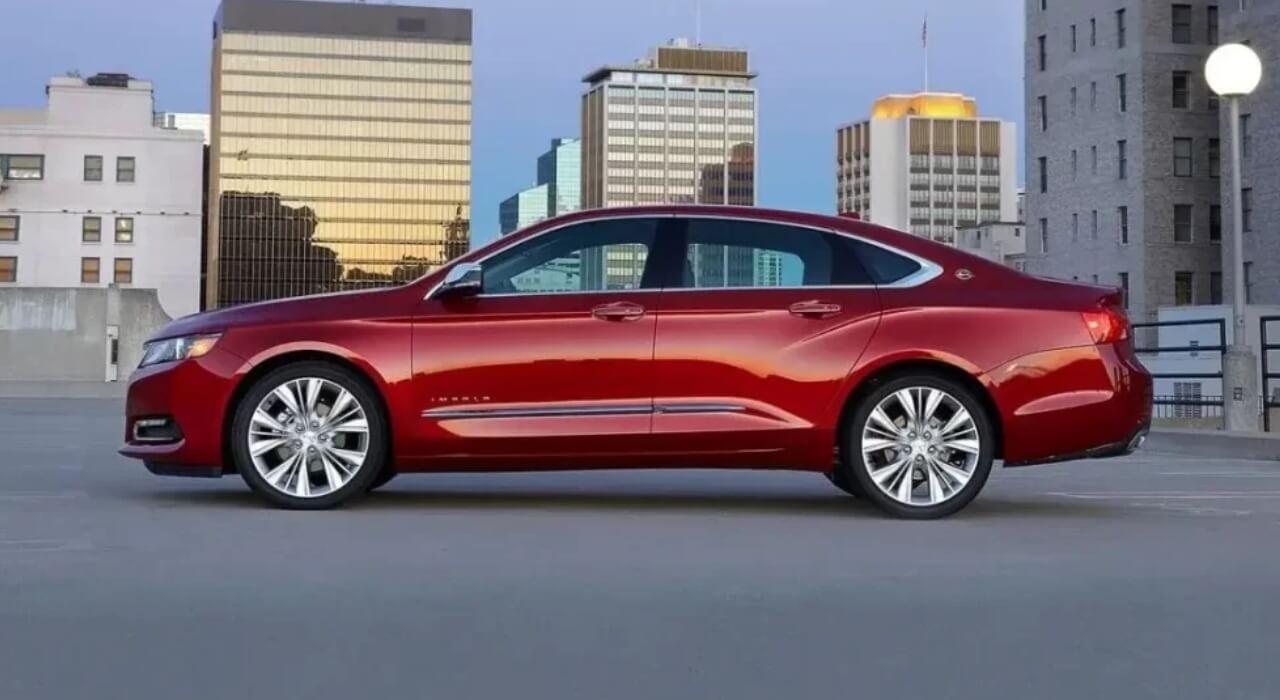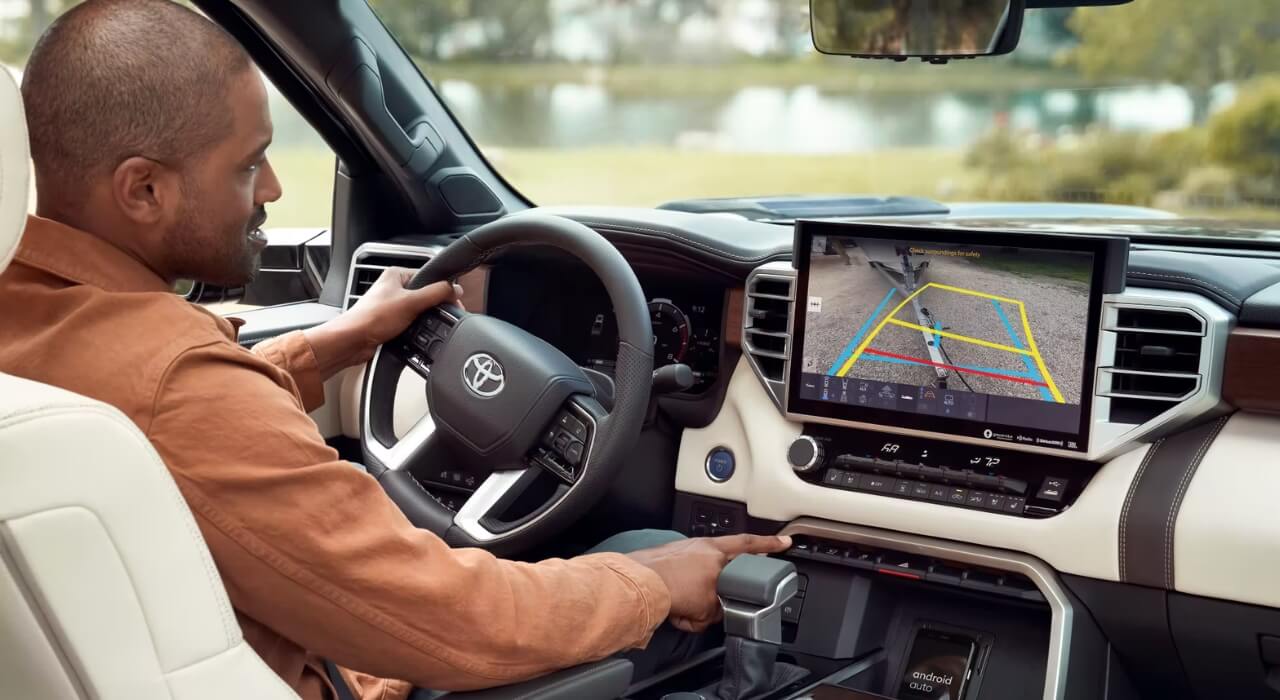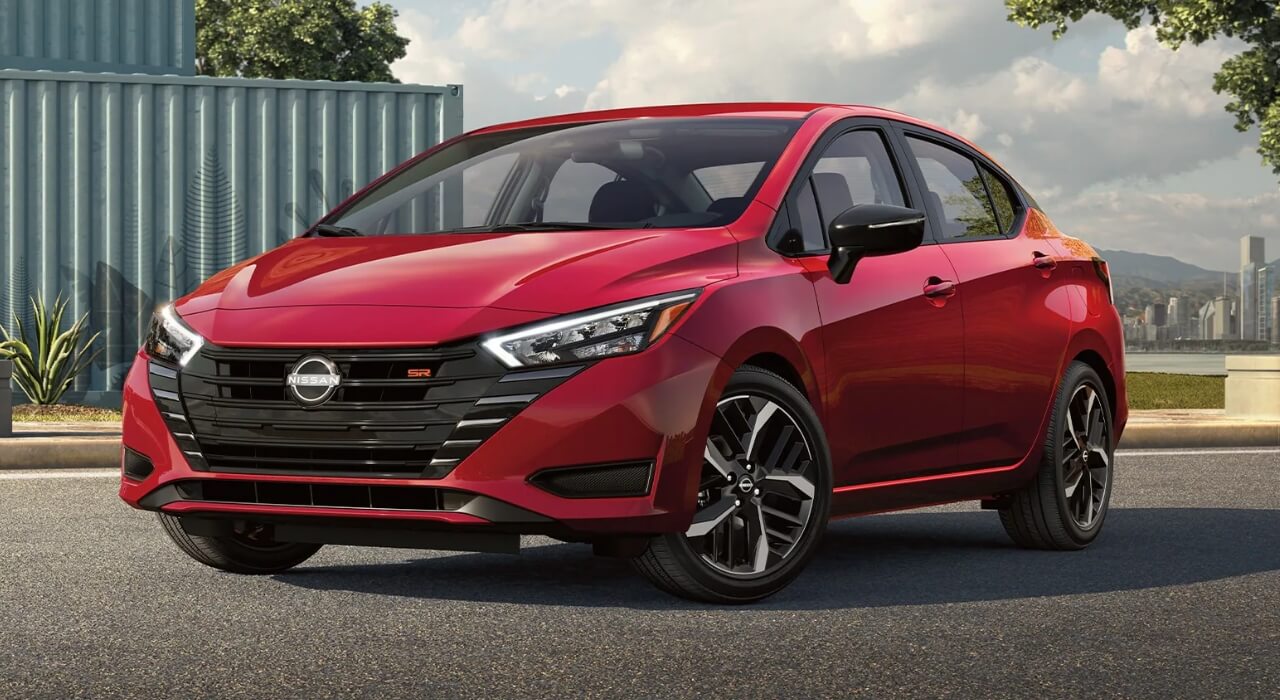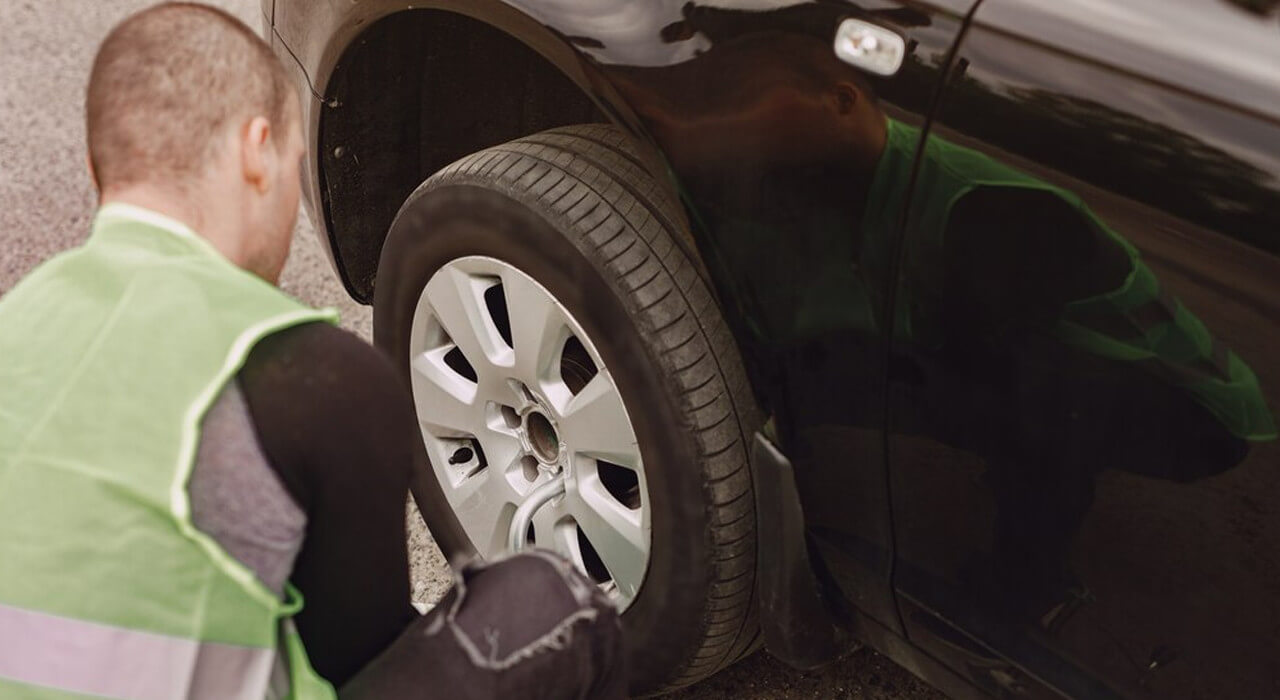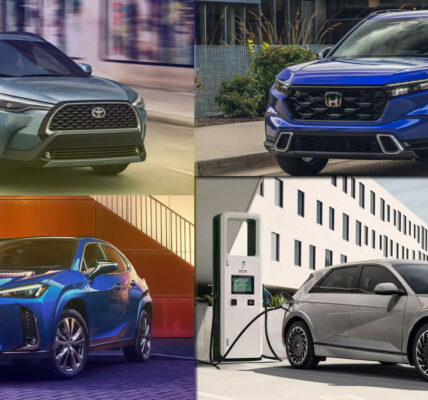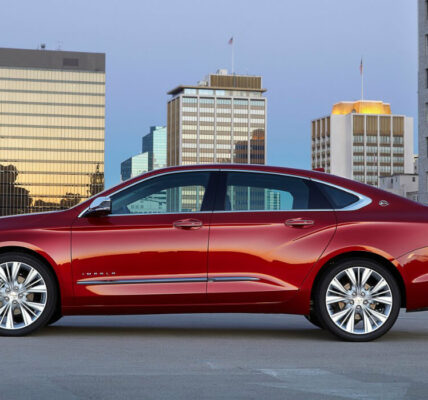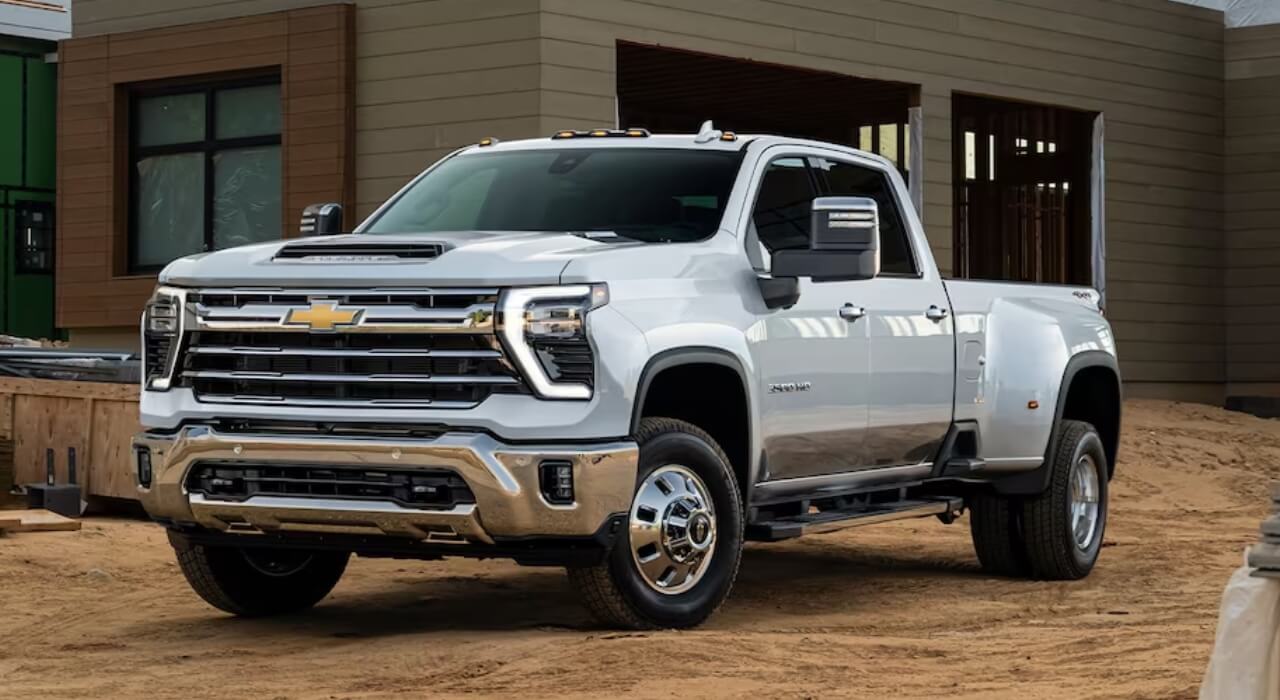Clunking Sound When Braking At Low Speed – Top Causes & Solution To Fix It
Your car’s braking system is an important safety component of your car. Without its proper functioning, a safe ride cannot be expected. Therefore, a little clunking sound when braking at low speed can also be a cause for concern.
Brake noise is a sign that your car’s braking system is not working properly. Even if the problem is minor, you still need to fix it to avoid the dangers that come from a brake malfunction.
The working principle of braking is the friction between the brake pad and the rotors attached to the wheels to slow down to a complete stop. So when you hit the brake paddle, the hydraulic oil pushes the brake pad against the rotors to create friction and bring the car to a stop.
During this braking operation, you may hear noise when braking at a low speed. Usually, this can indicate a defect in one of the braking elements.
Therefore, here in this post, you will find a detailed explanation of the types of noise in braking systems and the probable origin of the knocking noises you hear when braking.
This gives you an idea of what to look out for if you ever hear a grinding noise when you step on the brake pedal.
Types Of Noise Of Braking & Accelerating Systems
In this section, we will distinguish between the different brake sounds. And we know how to diagnose the fault ourselves based on the noise. We have three types of brake noise here: screeching, screeching, and clunking.
1. Grinding Noise
Hearing a screeching sound when you apply the brakes is like hitting a roadside soundtrack; When you hear this, you need to wake up and stop driving.
Squeaking when braking is usually due to a lack of material in the brake pads; Pads and rotors are now metal on metal and leave no braking material behind.
2. Clunking Noise
A rattling or knocking noise can be heard when braking a car. Stronger breaking produces louder noise at higher speeds. This may be a failure of the steering parts, such as the rack and pinion steering on a front-wheel drive vehicle or the tie rod ends on a rear-wheel drive vehicle.
Steering parts may be cracked or broken and need to be replaced before they stop working. Shocks and springs can click when braking if they are loose or broken.
3. Squeaking/squealing
This is likely an indication that your brake pads need replacing. They’re equipped with wear indicators that rub against the rotors and make that metal-on-metal noise.
Other possible causes of the car squeaks are deposits between the brake pad and brake disc, glazing caused by stuck brake calipers, or worn brake shoes.
Here Are 6 Top Cause Of Clunking Noise When Driving Slow
If you hear a knocking noise when braking at low speed, you should pay attention. These sounds can warn of danger. It is safe to do a sound test and find out what the sources of these noises are. In this section, we will discuss the main reasons for such noises.
Suggestion: Best Motorcycle Windshield Cleaner Models.
A. Loose Brake Caliper
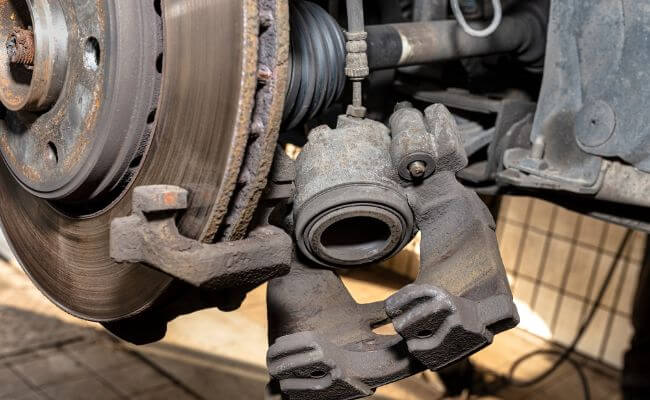
A loose brake caliper is a common cause of clanking noises when driving slowly. If your car sits idle for long periods without much use, or you park it often in a damp environment, corrosion and rust can occur, which can seize the brake calipers.
Even the parking brake cable mechanism can get stuck, causing the brakes to bind at times. Therefore, it is necessary to further lubricate the cable and mechanism.
Also Check:
B. Bad CV Joints
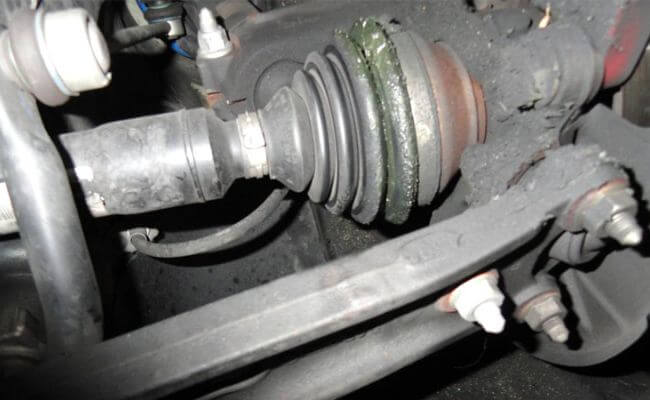
If you hear a clicking noise when you brake, you need to have your car checked. If your constant velocity joints are bad, it can cause the axle shaft to come loose and damage other parts of your vehicle.
However, if one of these gaskets is damaged but still not causing problems, it may not need immediate repair.
C. Worn Bushings
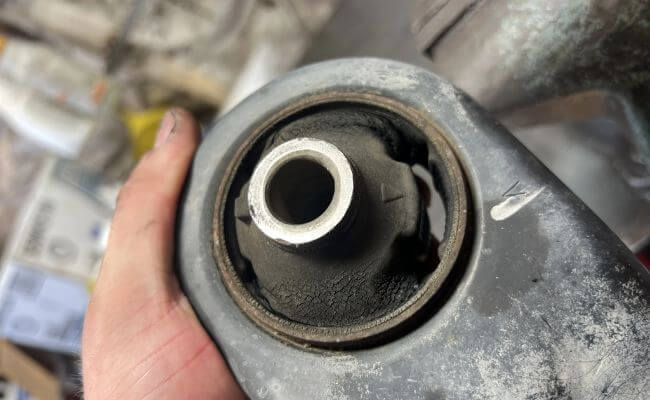
A bushing is a small piece of rubber or plastic that cushions the connection between the brake pedal and caliper. Reduces vibration and provides smoother operation by absorbing some braking energy.
Related: Best Drying Towels for Cars Today!
If you hear clinking noises when braking, this could be due to worn bushings. A worn bushing can cause the pedal to move down slightly when you apply pressure.
D. Worn-Out Rotor Disks
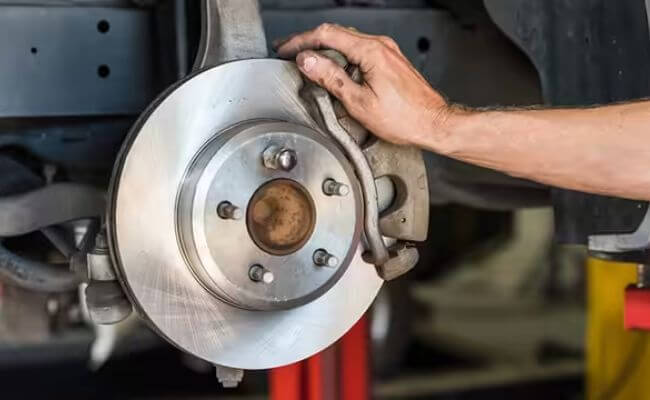
Rotor disc wear can be caused by braking with worn brake pads or by using a cheap or poor-quality brake pad that scratches the surface of the rotors. So after a while, the surface of your rotors will never stay as flat as it is.
Another reason why the surface of the rotors sinks is washing your car and exposing the rotors to cold water while it is still hot.
Also Check:
E. Damaged Shock Absorber
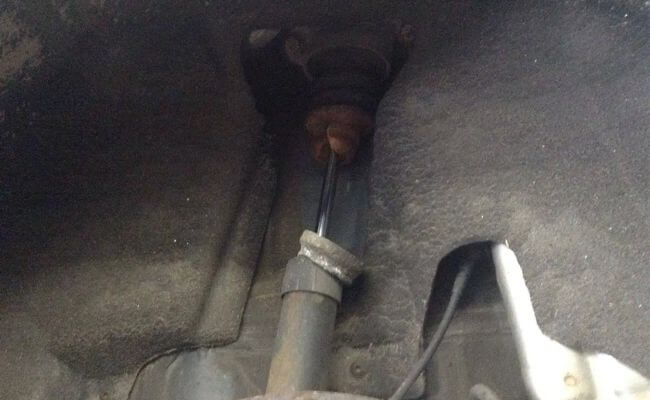
Rough driving over uneven surfaces can damage shock absorbers or wear them out over time. Therefore, if they break, they can cause metallic noises when braking. Therefore, if you hear erratic noises from the brakes, you should change the damper.
F. Broken Shims
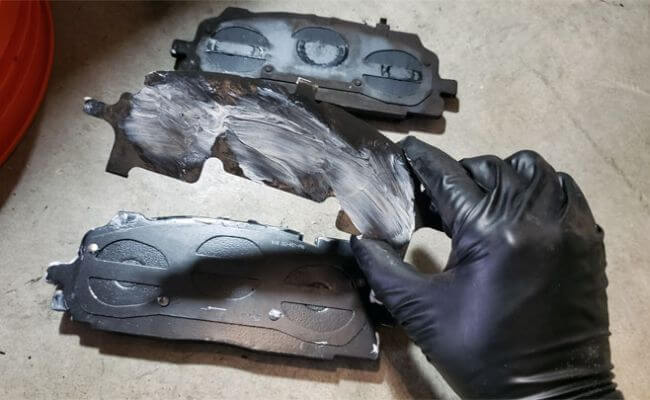
Brake pad washers are thin rubber or metal adhesives that are placed between the caliper and the brake pad to fill in the small gaps that can cause annoying noises. A worn disc creates metal-to-metal contact that creates a grinding noise.
Don’t Miss To Checkout: Bike Rack for your SUV without a Hitch.
And you will probably hear a knocking sound when braking at low speed. Be sure to replace them when working on the brakes.
How To Fix The Knocking Noise When Slowing Down The Car
You must first determine if the metallic noise is coming from the brake pads or another mechanical part of your car. If it turns out that no other part of your braking system is damaged, you probably need to replace the brake pads.
Moreover, here are some other different ways to fix that rattling noise every time you brake:
1. Examine Loose Parts
The first step is to remove the front wheels of the car. Then do a simple check trying to move the calipers, pads and rotors, and other braking components. All these parts should not be moved or shaken by hand alone.
Also Read: New Toyota GR Corolla Review.
If you can vibrate it with your hands, then some clips and screws are missing, damaged, or loose. You must correct them immediately.
2. Check Fluid Leaks
You may want to check the brake fluid reservoir and master cylinder for fluid leaks. The liquid level must be between the minimum and maximum.
The inspection of the lines and wheel cylinders is similar to the inspection of the wheel bearings. This can be done by removing a wheel and examining it closely.
3. Replace Control Arms
If you’re the type of person who uses your car for off-road adventures, the rattling noise it makes when braking or driving over potholes is likely caused by damaged or worn control arms.
Similar Post: How To Improve Your Car Fuel Efficiency.
To check if this is the issue, you should first take your flashlight and do a visual inspection of the car’s control arms. Look for damaged or broken parts. If you find them, be sure to resolve the issue as soon as possible.
You should have these parts repaired before taking a test drive because it is a safety issue.
4. Check The Brake Rotor
The last check you can do is check the brake discs. As you use your vehicle and change the brake pads, the brake discs can be affected by all of this. A rough brake rotor will cause the brake pad to jump and move.
They must have a very smooth rotor surface. So if the rotor wear is not too high, you may need to machine the rotors to make the rotor surface smooth.
Top FAQs Related To What Causes Clunking Noise When Braking
Why is my car making a clunky noise when I drive?
This may be due to the wedges, clip bolts, and brake assembly moving as the vehicle moves. However, if your car makes a rattling noise when cornering, it could be a problem with the steering, wheels, and tires, or a worn wheel bearing.
To fix this creaking, you may need to verify that all of the above parts are tight and secure together. If not, you will need to replace the faulty one.
What causes clunking noise in the front end?
Several issues can cause the front wheels to knock hard when accelerating. These problems are not far away from the steering racks, brakes, and front suspension components.
Another possible cause of rattling is faulty struts, also known as shock absorbers. Your car’s suspension system provides stability to the cabin when the wheels roll over rough terrain.
Why does my car knock when I slow down?
A thud when braking at low speeds usually indicates worn or damaged brake discs, rotors, calipers, or backing plates. It is also important to check the suspension system, especially the bushings.
Any issue with the suspension system will result in a slack motion under braking that will make a rattling noise.
Can a bad axle make a clunking noise?
Of course, when a CV front axle is bad, it makes a rattling noise when you take a slow turn. When a rear axle breaks, the rattling or groaning noise is at the rear. Now there is no preventative maintenance you could have done to make your axles last longer.
But you can have them checked once in a while to see if there’s a problem like a leaky seal or broken boot.
How is clunking noise diagnosed?
The most common cause of this noise is the pads, and that’s okay. Brake pads can sometimes rattle due to thermal expansion, especially if they were installed without vibration dampers.
Note that this rattle should not be constant and should never occur while your foot is on the brake pedal. In these conditions, you should have your brakes checked. It could be an indicator
serious problem.
Is it safe to drive with clunking suspension?
Not recommended. Your suspension system is complex, and each part must work correctly to ensure a smooth and safe ride for you and your passengers.
Any broken or damaged part can affect your car’s handling, steering, or braking, making it dangerous to drive.
Final Thought
Finally, a popping sound when braking can be an early warning of a serious problem. In this guide, we will learn about the causes and types of brake noise problems that can help you protect yourself from the causes and take quick action.
If you think there is something wrong with the braking system, diagnose the defect yourself and try to fix it yourself.







